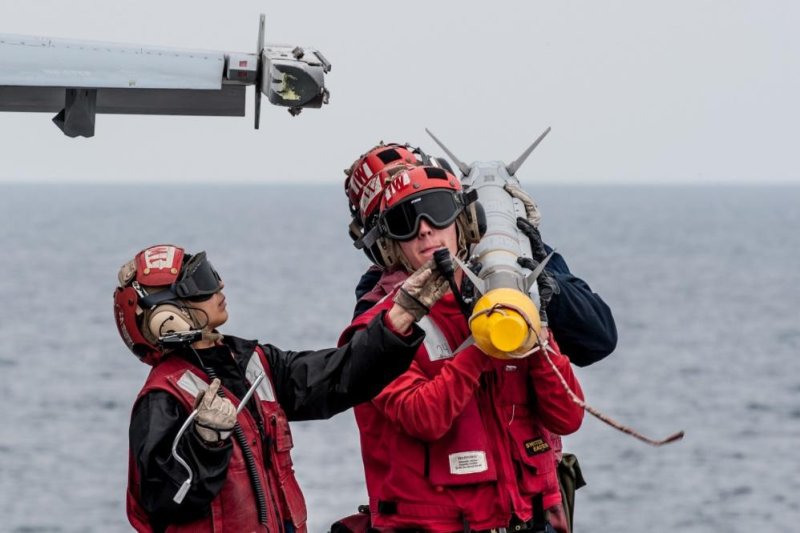Sailors assigned to the "Diamondbacks" of Strike Fighter Squadron VFA-102 load an AIM-9X Sidewinder missile on an F/A-18F Super Hornet. Photo by Petty Officer 3rd Class Nathan Burke/U.S. Navy
Dec. 28 (UPI) -- Naval Air Systems Command has awarded Raytheon with a modified contract for engineering services in support of the AIM-9X Sidewinder missile.
The contract, announced Wednesday by the Department of Defense, is worth more than $10.2 million under a fixed-price-incentive-fee contract, which applies an adjusted formula based on the specifies of the target cost, target profit and the price ceiling, or the maximum that may be paid to Raytheon.
The AIM-9X Sidewinder missile is considered dual purpose, as it is effective in either air-to-air engagements or surface-to-air applications.
In addition to being retrofitted for Navy and Air Force fighters, from the F-15 Eagle to the F/A-18 Hornet, the AIM-9X Sidewinder missile is compatible with the Army's ground-based, multi-mission launcher.
The contract calls for Block II missiles, which will include engineering change proposals for 100 AIM-9X missile that were purchased under Lot 17 this year.
Engineering change proposals are a management tool the U.S. government uses to propose a configuration change during product acquisition.
Work on the contract will occur in Tucson, Ariz., and is expected to be completed in September 2020, the Pentagon said.
More than $10.2 million will be obligated to Raytheon at the time of award, which will be allocated from Navy and Air Force missile and weapon procurement funds from fiscal year 2017. The funds will not expire at the end of the current fiscal year.















